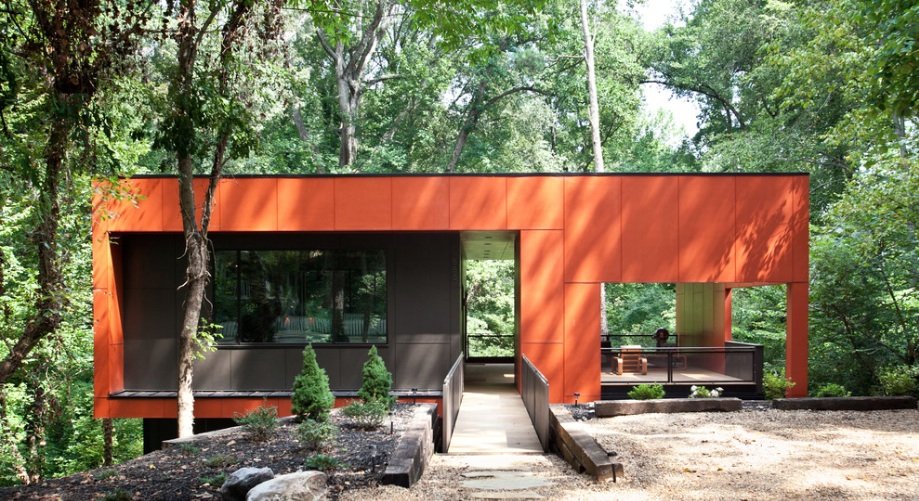#10495. Orange Forest Pavilion: Vibrant Minimalist Facade in Natural Surroundings
This is a striking example of contemporary minimalist architecture harmoniously integrated into its natural surroundings. The building's facade presents a clean geometric composition executed in a rich orange color that effectively contrasts with the surrounding forest greenery. The orange panels, likely made of metal or composite materials, create a unified monolithic volume, broken up by dark inserts and glass surfaces.
Particularly noteworthy is the thoughtful work with negative space – the opening in the right part of the facade creates visual lightness and allows the building to be perceived not as a solid mass but as a more airy structure. The architect skillfully employs cantilevered extensions, giving the building a sense of hovering above the ground and minimizing intervention in the natural landscape.
The facade is devoid of decorative elements; its expressiveness is achieved through color, proportions, and material textures. Large windows provide a visual connection with nature and ensure sufficient natural light for the interior spaces. The approach to the building is organized via a simple bridge-pathway, emphasizing a respectful attitude toward the surrounding environment.
For application in your own project, you might consider the following techniques: using a bright color to highlight an architectural object in a natural setting; working with cantilevered structures to create an effect of lightness; contrasting combination of materials; creating "voids" in the building volume to visually lighten the facade mass; and taking a minimalist approach to detailing and finishing.
